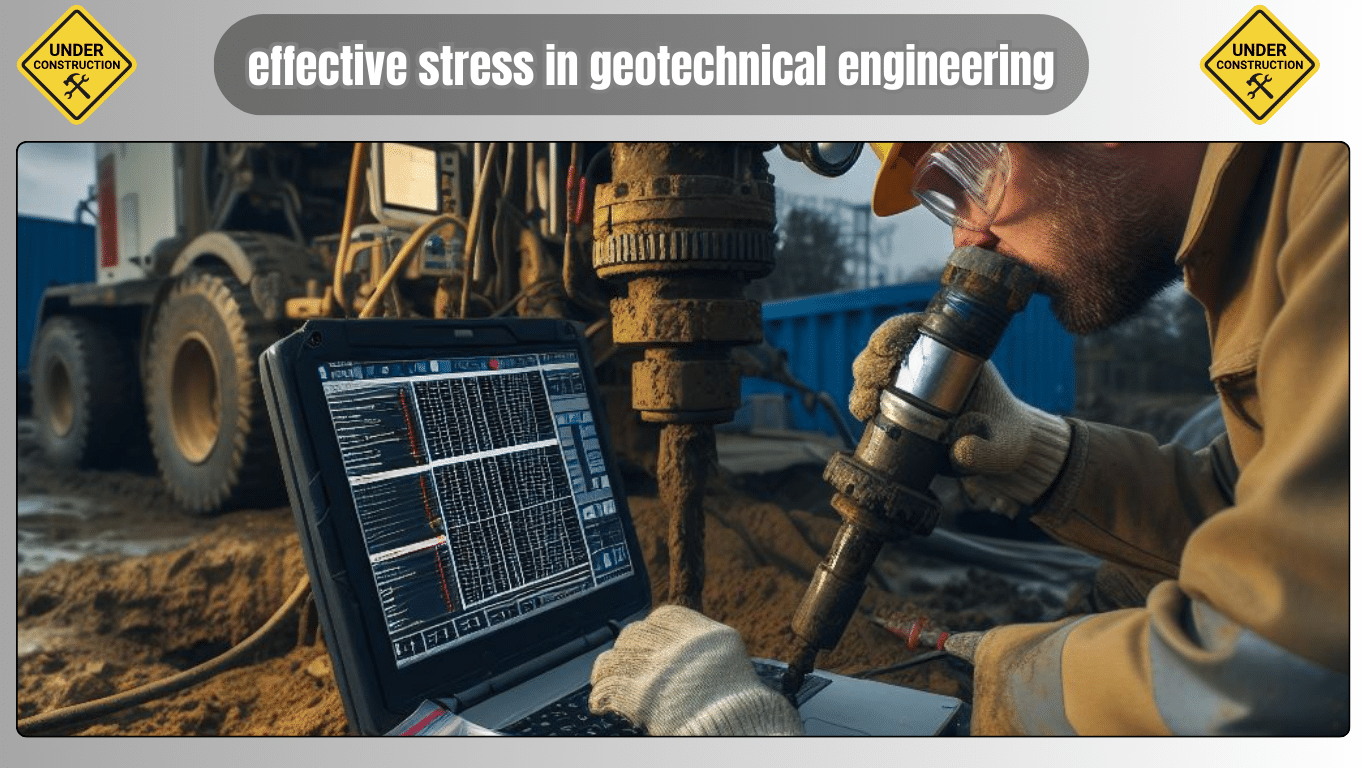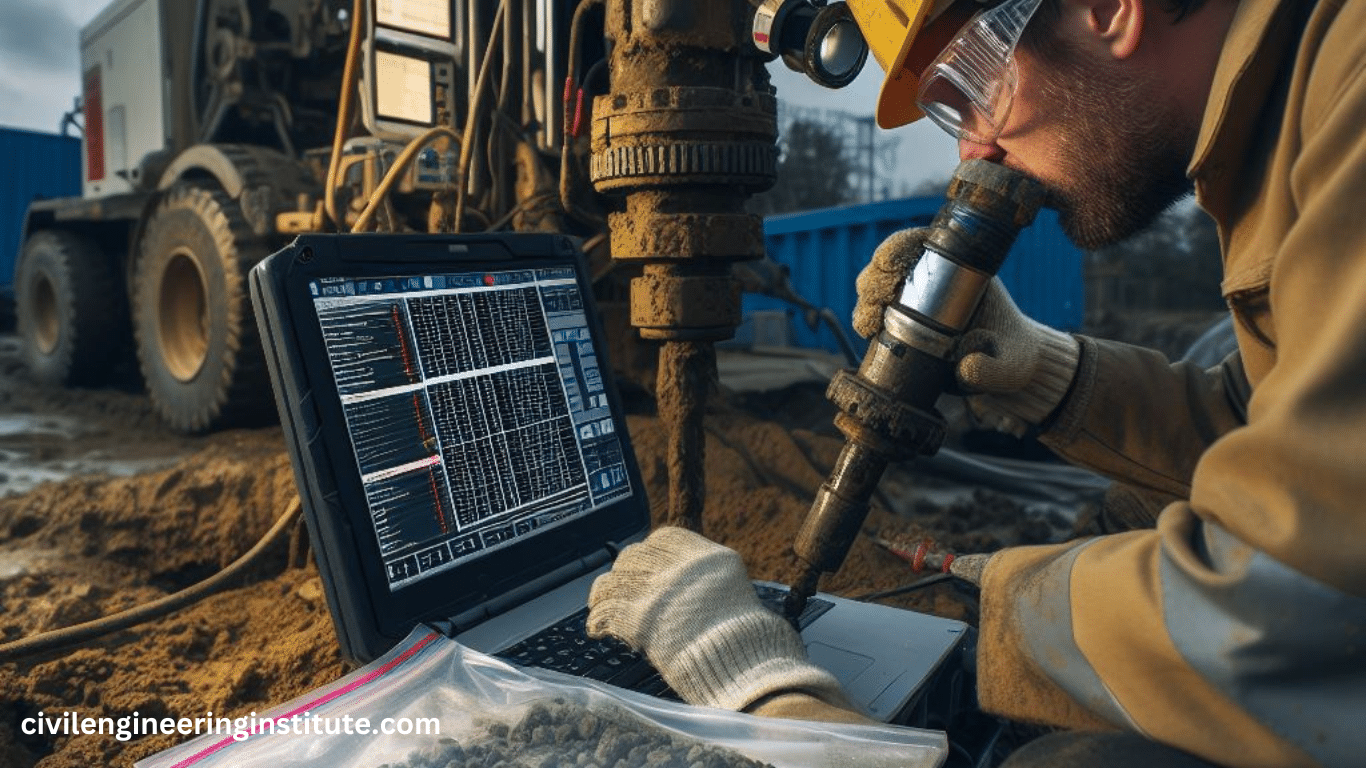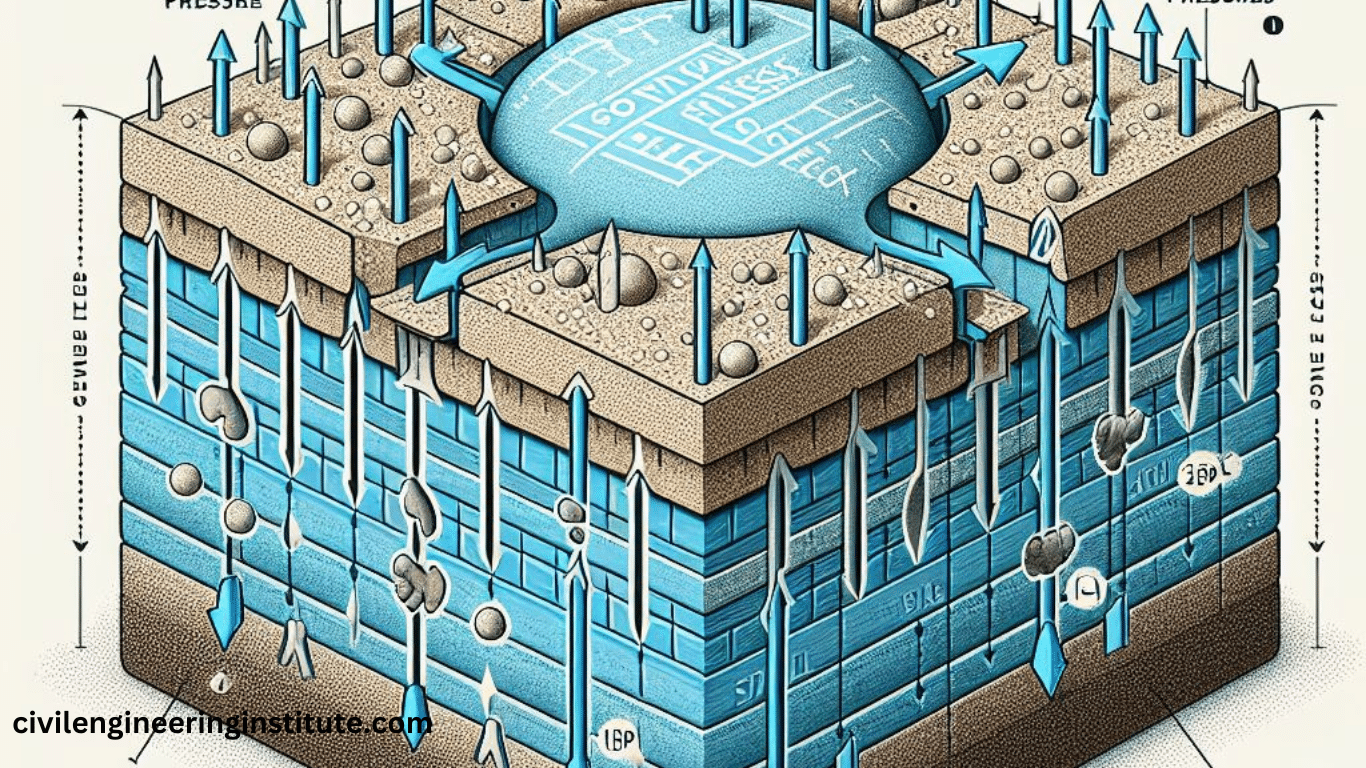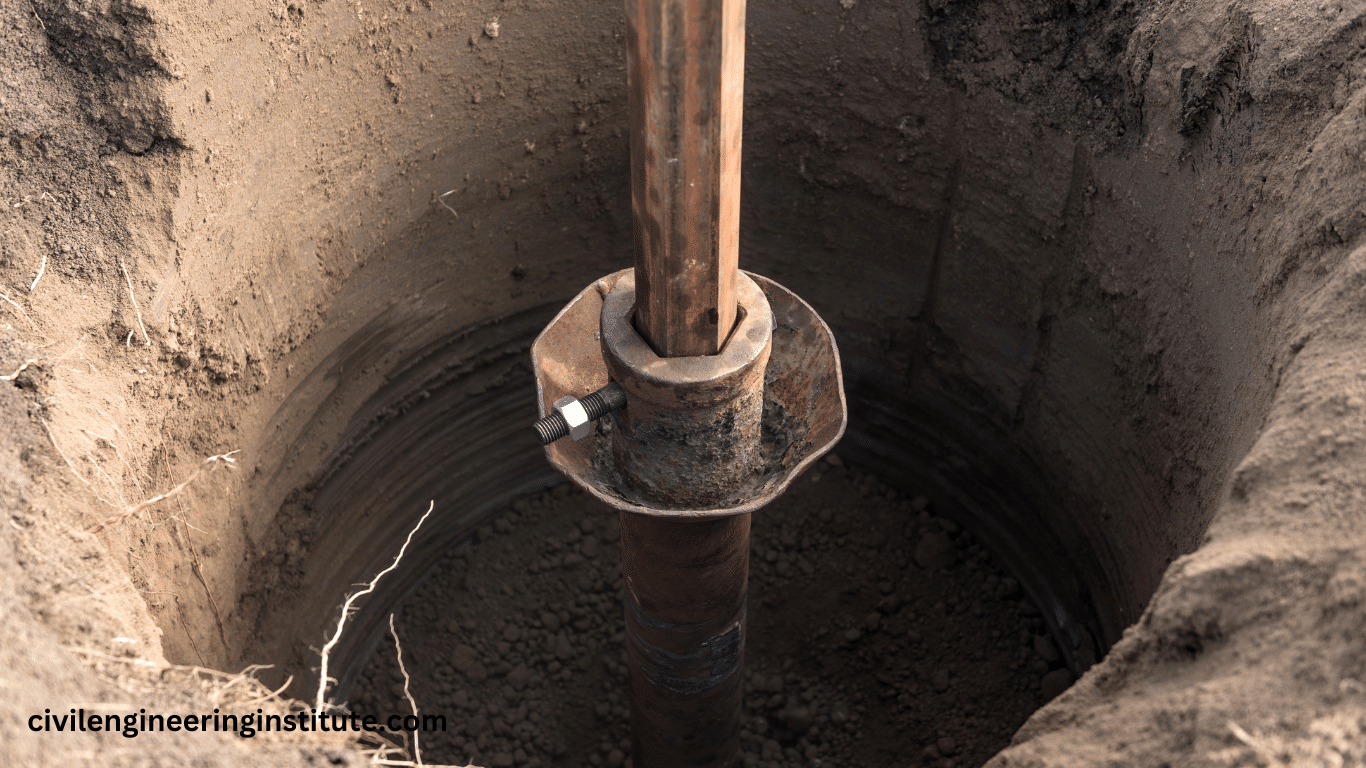Effective stress in geotechnical engineering refers to the pressure that actually holds the soil grains together. Imagine you’re holding a sponge. When you squeeze it, water comes out because you’re increasing the pressure on the sponge. Similarly, in soil, effective stress is what keeps the soil particles packed together. It’s like the weight of the soil above pressing down on the soil below, making it compact.
This effective stress is crucial because it determines how stable the soil is and how much load it can bear without collapsing. Engineers use effective stress to understand how soil behaves under different conditions, helping them design safe and stable structures like buildings, roads, and dams. So, it’s kind of like the hidden force that holds the ground beneath our feet together.
Understanding Effective Stress in Geotechnical Engineering
Geotechnical engineering deals with the study of soil and rock behavior, crucial for constructing safe and stable structures like buildings, roads, and bridges. One fundamental concept in this field is “effective stress,” which plays a significant role in understanding soil mechanics. Let’s delve into what effective stress is and why it matters.
What is stress?
Before we jump into effective stress, let’s first understand what stress means in geotechnical terms. Stress is a force applied to an area. When we talk about soil, it’s the force exerted on the soil particles due to the weight of the soil layers above them or any applied loads, like buildings or structures.
Understanding Effective Stress:
Effective stress is a concept that helps engineers predict how soil behaves under different conditions. It considers the interplay between the forces acting on the soil particles and the water pressure within the soil pores. In simpler terms, it’s the stress that actually holds the soil particles together.
Components of Effective Stress
Effective stress comprises two main components:
- Total Stress
- Pore Water Pressure
Total Stress: Total stress is the total force acting on the soil particles. It includes the weight of the soil itself and any external loads applied to it. Imagine a stack of books on a table—the weight of the books pressing down on the table represents total stress.
Pore Water Pressure: Pore water pressure is the force that the water in the tiny pore spaces of the soil exerts. This pressure pushes against the soil particles, trying to separate them. In keeping with our earlier analogy of books, picture pore water pressure as the force that water between the pages of the books uses to push them apart.
Significance of Effective Stress
Understanding effective stress is crucial for several reasons:
- Soil Strength
- Stability Analysis:
- Foundation Design
- Groundwater Flow
Soil Strength: Effective stress directly influences soil strength. Higher effective stress means stronger soil, as it’s better able to withstand external forces without collapsing or deforming.
Stability Analysis: Engineers use effective stress to analyze the stability of slopes, embankments, and retaining walls. By accounting for the effective stress, they can predict whether the soil will remain stable or potentially fail under various conditions.
Foundation Design: When designing foundations for structures, engineers must consider effective stress to ensure the soil can support the building’s weight effectively. Ignoring effective stress could lead to foundation failure.
Groundwater Flow: Effective stress affects how water flows through soil. By understanding the relationship between effective stress and pore water pressure, engineers can predict groundwater movement and prevent issues like soil liquefaction during earthquakes.
Key points of effective stress in geotechnical engineering
Definition:
Effective stress is a concept used in geotechnical engineering to describe the stress that contributes to the soil’s shear strength and deformation behavior.
Components:
It comprises two main components: the total stress exerted on soil particles and the pore water pressure within the soil.
Total Stress:
Total stress is the force applied to the soil particles due to external loads, such as the weight of structures or soil layers above.
Pore Water Pressure:
Pore water pressure is the pressure that water exerts within the soil’s pore spaces, which tends to lower the effective stress by pushing soil particles apart.
Effective Stress Equation:
The effective stress is calculated by subtracting the pore water pressure from the total stress. Mathematically, it’s expressed as σ’ = σ – u, where σ’ is the effective stress, σ is the total stress, and u is the pore water pressure.
Importance:
Understanding effective stress is crucial for analyzing soil stability, slope stability, and designing foundation systems for structures.
Shear Strength:
Effective stress governs the shear strength of soil, influencing its ability to resist deformation and failure under applied loads.
Consolidation:
In soil mechanics, effective stress plays a vital role in consolidation processes, where excess pore water is gradually squeezed out from the soil mass due to applied loads.
Influence on Soil Behavior:
Changes in effective stress can significantly impact soil behavior, affecting its compaction, settlement, and response to external forces.
Engineering Applications:
Engineers use the concept of effective stress extensively in various geotechnical analyses, such as bearing capacity calculations, stability analysis of slopes and retaining structures, and assessing the potential for soil liquefaction during earthquakes.
more information regarding effective stress in geotechnical engineering
What is effective stress in geotechnical engineering?
Effective stress in geotechnical engineering refers to the stress that actually influences the behavior of soil. It’s a critical concept because it helps engineers understand how soil responds to applied loads. Effective stress comprises two main components: the total stress exerted on soil particles and the pore water pressure within the soil. By considering both factors, engineers can accurately assess soil stability and deformation characteristics.
What is the effect of stress on soil?
Stress affects soil in various ways. When external loads are applied to soil, they create stress, which can cause soil particles to compact, shift, or deform. The magnitude and distribution of stress determine how soil behaves under different conditions. Excessive stress can lead to soil failure, while controlled stress can improve soil compaction and stability. Understanding the effects of stress on soil is essential for designing safe and reliable structures on or within the ground.
What is the effective stress state?
The effective stress state refers to the condition of soil where the stress applied to the solid particles is balanced by the effective stress, which is the difference between the total stress and the pore water pressure. In this state, the effective stress governs the soil’s behavior, including its strength, stiffness, and ability to resist deformation.
What is the difference between effective stress and neutral stress?
Effective stress and neutral stress are different concepts in geotechnical engineering. Effective stress refers to the stress that influences soil behavior by considering both total stress and pore water pressure. On the other hand, neutral stress, also known as hydrostatic stress, refers to the stress exerted uniformly in all directions within a fluid. While effective stress affects soil mechanics, neutral stress is primarily relevant in fluid mechanics.
What is the symbol for effective stress?
The symbol commonly used to represent effective stress is σ’. It distinguishes effective stress from total stress (σ) and pore water pressure (u), allowing engineers to accurately analyze soil behavior and stability.
What properties depend on effective stress?
Several properties of soil depend on effective stress, including its shear strength, compressibility, permeability, and consolidation behavior. Effective stress governs how soil particles interact and arrange themselves under external loads, influencing the overall behavior and stability of soil masses.
What is the relationship between void ratio and effective stress?
The relationship between void ratio and effective stress is crucial in understanding soil behavior. Void ratio, which is the ratio of void volume to solid volume in soil, decreases as effective stress increases. This relationship reflects the compaction and densification of soil particles under applied loads, leading to reduced pore spaces and increased soil density. Consequently, understanding this relationship helps engineers predict soil settlement and deformation characteristics under different loading conditions.
Conclusion
Effective stress is a fundamental concept in geotechnical engineering, essential for understanding soil behavior and ensuring the safety and stability of structures. By considering both total stress and pore water pressure, engineers can make informed decisions about soil strength, stability, and foundation design. In essence, effective stress is the glue that holds the soil together and keeps our buildings standing tall.
FAQs
What is effective stress, and why is it important in geotechnical engineering?
Effective stress is the stress that actually affects soil behavior, considering both total stress and pore water pressure. It’s crucial in geotechnical engineering because it helps engineers understand how soil responds to external loads, ensuring the safety and stability of structures.
How does stress affect soil?
Stress can cause soil particles to compact, shift, or deform under applied loads. Understanding the effects of stress on soil is essential for designing structures and assessing soil stability.
What is the effective stress state, and why does it matter?
When effective stress balances the stress applied to soil particles and influences soil behavior, this is the effective stress state. It matters because it determines the strength, stiffness, and deformation characteristics of soil.
What is the difference between effective stress and neutral stress?
Effective stress considers both total stress and pore water pressure, affecting soil mechanics. Neutral stress, or hydrostatic stress, is uniform in all directions within a fluid and is relevant in fluid mechanics.
What symbol represents effective stress?
The symbol commonly used for effective stress is σ’. It distinguishes effective stress from total stress (σ) and pore water pressure (u) in geotechnical analyses.
Which properties of soil depend on effective stress?
Several properties, including shear strength, compressibility, permeability, and consolidation behavior, depend on effective stress. It influences how soil particles interact with and arrange themselves under external loads.
How does the void ratio relate to effective stress?
The void ratio decreases as effective stress increases. This relationship reflects soil compaction and densification under loads, affecting soil settlement and deformation characteristics.
Why is effective stress analysis important in construction projects?
Effective stress analysis helps engineers predict soil behavior, assess stability, and design foundations for structures. It ensures that construction is safe and stable over time.
How does effective stress affect slope stability?
Effective stress influences the shear strength of soil, which is crucial for slope stability analysis. Understanding effective stress helps engineers assess the risk of slope failures and implement appropriate mitigation measures.
How does effective stress impact foundation design?
Effective stress governs the bearing capacity and settlement characteristics of soil, directly affecting foundation design. Engineers consider effective stress to ensure that foundations can support structures safely and prevent excessive settlement.




